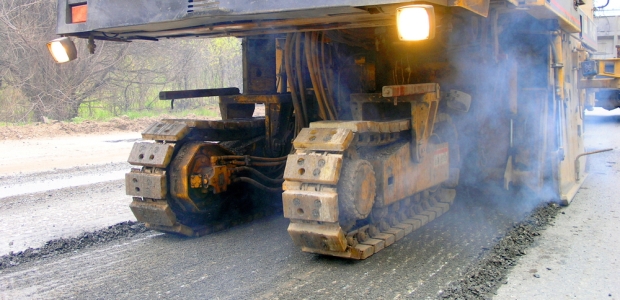
NIOSH, Partners Release Asphalt Pavement Milling Guidance Document
The 79-page document outlines best practices for preventing harmful exposures to respirable crystalline silica.
A new document from NIOSH and the Silica/Asphalt Milling Machine Partnership contains best practices for equipment manufacturers, equipment owners, and highway contractors for preventing workers’ exposures to respirable crystalline silica during asphalt pavement milling operations. The 79-page document aims to help the industry control silica-containing dust through ventilation and water spray applications. It explains current exposure limits and includes as appendices a daily dust control checklist and also a National Asphalt Pavement Association/Association of Equipment Manufacturers best practice bulletin.
Started in 2003, the partnership includes all U.S. and foreign manufacturers of heavy construction equipment that current sell pavement milling machines into the U.S. market, along with NAPA, AEM, paving contractors, the International Union of Operating Engineers, the Laborers International Union of North America, OSHA, and the Federal Highway Administration.
According to NIOSH, approximately 367,000 U.S. workers work in highway, street, and bridge construction and are at risk of exposure to respirable crystalline silica.
The document's recommendations include:
- Placing ventilation controls on all new half-lane and larger asphalt milling machines
- Maximizing enclosure around the cutter drum and conveyor belts of milling machines
- Designing a ventilation control with an outlet that releases dust at a high speed in an upward orientation located near the top of the secondary conveyor or in another location away from workers, if the ventilation control on the machine does not already include a dust collector
- Retrofitting water sprays that are used to prevent or suppress dust on milling machines if ventilation dust controls are not available
More information on NIOSH’s research related to engineering controls for silica and construction can be found here.